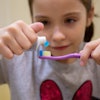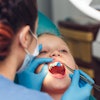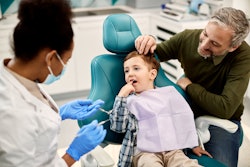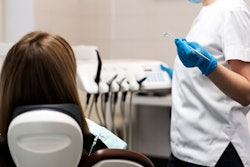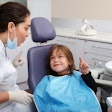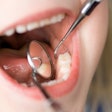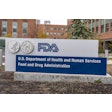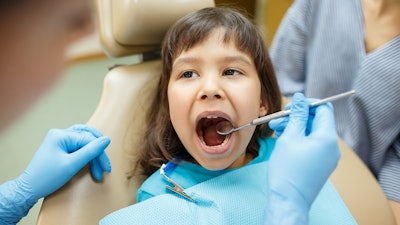
Pediatric primary care physicians (PCPs) who were trained to perform oral exams, discuss children's oral health with parents, and provide referrals to dentists increased dental visits, according to a study published in JAMA Network Open.
In addition to raising dental visits, the intervention reduced the incidence of untreated caries.
Among preschool-age children from lower-income families, 17% have untreated caries in their baby teeth -- a figure that is three times higher than children from higher-income families, according to the National Institute of Dental and Craniofacial Research. Hispanic and Black children have higher rates of untreated cavities.
To assess the importance of holistic wellness visits -- pediatric wellness visits coupled with an oral health-focused component -- on dental visits, untreated tooth decay, and oral health disparities, researchers, led by Suchitra Nelson, PhD, a professor and associate dean at Case Western Reserve University's School of Dental Medicine, gave 63 pediatric physicians oral health-related education and skills training.
The training included instruction about the signs of dental caries in teeth, recording the findings in the child's electronic health record, discussing oral health with the child's parents, and providing physicians with a list of local clinicians who accepted Medicaid to whom they could refer patients.
The study followed 1,023 children who were enrolled in Medicare and their parents over three years. Half of the children received a typical medical wellness visit. The other half received a medical wellness-oral health intervention visit.
By the third-year wellness visit, 52% of the children in the intervention group had visited a dentist versus 43% in the control group. Children who received a holistic wellness visit were 34% more likely to receive dental care than children who received a standard medical wellness visit. Furthermore, the intervention group had fewer untreated decayed teeth than the control group. (JAMA Netw Open, July 9, 2024, Vol. 7:7, e2418217).
However, there were limitations to the study, including that follow-up losses at well-child visits lowered the sample size. In addition, Medicaid claims data can overestimate dental attendance, which may not accurately convey if a child received further dental care.
An additional aim of the study was to ascertain how the importance of regular dental checkups can be emphasized as part of a holistic health approach. In 2023, the U.S. Preventative Task Force concluded there was insufficient evidence to support the benefits of PCPs conducting routine oral screenings for conditions, including caries or periodontal-related diseases, in children and adolescents. Nelson said she plans to use the study's findings to implement this strategy and resources to reach healthcare providers nationwide.
"These findings suggest that clinicians receiving expanded oral health training can effectively counsel parents and increase timely dental care for children" Nelson and colleagues concluded.
